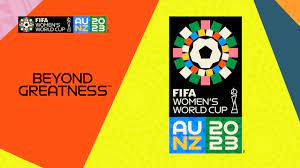By Samindra Kunti in Auckland
July 20 – Australians once described football as a game for Sheilas, Wogs and Poofters but from Thursday on they will co-host, alongside New Zealand, the sport’s premier women’s tournament with more finalists than ever vying for the global crown in a World Cup that FIFA boss Gianni Infantino believes will win over the sceptics, even if pay disputes and prize money inequality shroud the month-long football festival.
Under the slogan ‘Beyond Greatness’, New Zealand and Norway with Ada Hegerberg will feature in the tournament’s long-awaited curtain raiser in Auckland. What ‘Beyond Greatness’ means or alludes to, remains somewhat of a mystery, but FIFA and Infantino want the ninth iteration of the Women’s World Cup, the first to be played in a 32-team format, to become the ‘best ever’.
That won’t be an easy task, following the success of the 2019 finals. Australia and New Zealand saw off Colombia to land the hosting rights, but they don’t belong to the game’s heartlands.
On Wednesday, FIFA confirmed that 1,375 million tickets had been sold for the tournament, a record, but uptake in New Zealand has been slow, with the sight of thousands of empty seats across the four Kiwi host cities very plausible. In a news conference, Infantino and FIFA secretary general Fatma Samoura urged New Zealanders to “seize the moment” and start buying tickets.
In the days leading up to the finals, despite wall-to-wall media coverage, enthusiasm has been low with no buzz at all in Sydney, the main host city in Australia, where a few banners here and there as well as the odd ad suggest that indeed there is a major tournament in town.
However, Australia’s opening game against Ireland could kickstart proper hype with 83,500 fans expected to fill Stadium Australia.
The time zone won’t help either. European viewers will have to get up at ungodly hours to follow the tournament. It was one of the reasons why some European broadcasters were reluctant to invest heavily in the tournament’s rights as FIFA for the first time went to market with the Women’s World Cup TV rights unbundled with the media rights of the men’s tournament.
When major offers in some key European markets did not materialize, Infantino, who had repeatedly implored broadcasters to show FIFA the money, threatened a blackout.
At the recent FIFA Congress in Kigali, Rwanda, Infantino said the prize pot for the tournament will be $110 million, up from the $30 million at the last Women’s World Cup, but still well short of the $440 million at the recent men’s World Cup in Qatar.
At a news conference on Wednesday, Infantino seemed to shoot himself in the foot with the startling admission that FIFA could not guarantee that all players would get the minimum of $30,000 in prize money as set out by the governing body. Where will the money end up then? It contradicted Infantino’s long-trumpeted claims that FIFA have reformed and know where their money ends up.
Infantino understands that much of the focus will be on action on the pitch this month, even if turbulence has never been far away, not just in Nigeria and South Africa.
Canada Soccer’s governance crisis has long affected the Olympic champions, England have paused their negotiations with the FA over World Cup bonuses, and Jamaica’s players reportedly had to organise their own fundraisers, as in 2019, to list but a few of the problems hampering preparations.
Controversy over armbands also dominated the tournament build-up with FIFA replacing the rainbow armband with eight statement armbands with vague, prescribed messages such as ‘gender equality’, ‘inclusion’ and ‘peace’.
It’s PR that often backfires. FIFA has allowed for First Nations and Maori flags to be flown at the matches, but at the same time stand accused of ignoring those football communities in a year that Australia will stage the Voice, a referendum to recognise First Nations people in the constitution and give them a voice in parliament.
And then there is the dreaded VAR, the video referee system that has caused much controversy since FIFA rolled it out at the 2017 Confederations Cup in Russia. Its adoption in various domestic leagues has not gone smoothly. In a novel move, at this tournament referees will explain how they came to an on-field review decision, for which trials were held during the Club World Cup in February and the Under-20 World Cup in June. That way FIFA hopes to clarify certain decisions for the fans even if they will not be listening to the entire review process.
Contact the writer of this story at moc.l1743800031labto1743800031ofdlr1743800031owedi1743800031sni@i1743800031tnuk.1743800031ardni1743800031mas1743800031
